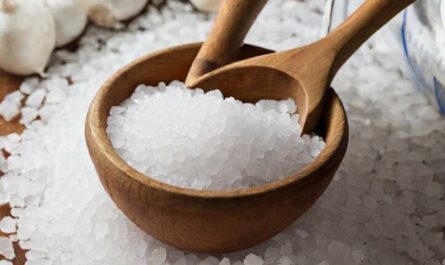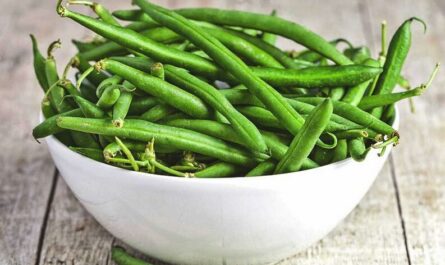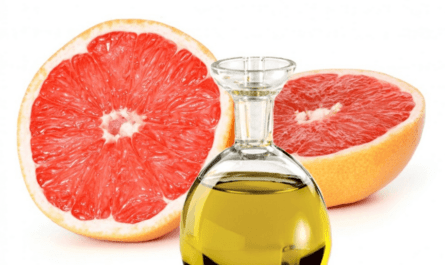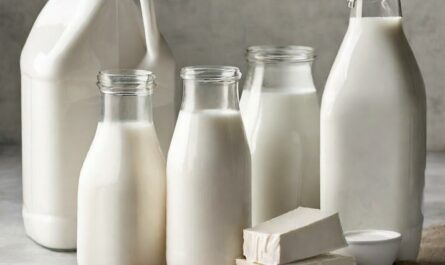Green tea has gained immense popularity for its unique flavor and potential health benefits. If you’re a green tea enthusiast, you might be wondering just how much caffeine is present in your cup. Understanding the caffeine content in green tea can help you make informed choices about your tea consumption. This article explores its health benefits, tips for managing your caffeine intake, and more.
What Is Green Tea?
Green tea has a rich history that dates back thousands of years. It originated in China and is made from the leaves of the Camellia sinensis plant. Unlike black tea, green tea undergoes minimal oxidation during processing, preserving its natural compounds and flavors.
The wide variety of green tea types, such as sencha, matcha, and genmaicha, offer unique tastes and aromas. Each type of green tea undergoes a specific processing method, resulting in distinct flavors and caffeine content.
Green tea is known for its earthy, vegetal taste and refreshing qualities. It contains various bioactive compounds, including polyphenols, catechins, and flavonoids, which contribute to its potential health benefits. The presence of these compounds gives green tea its characteristic color and flavor profile.

What is Caffeine?
Caffeine is a natural stimulant found in various plants, including tea leaves. When consumed, it stimulates the central nervous system, increasing alertness and reducing fatigue.
While caffeine offers several benefits, excessive consumption can lead to side effects such as insomnia, jitteriness, and increased heart rate. Understanding the basics of caffeine will help you make informed choices about your green tea consumption.
Caffeine affects individuals differently, and factors such as age, weight, metabolism, and tolerance levels can influence how caffeine is processed in the body. It’s important to note that sensitivity to caffeine can vary among individuals, and some people may experience stronger effects or greater tolerance.
Caffeine is water-soluble and is easily extracted from tea leaves during the brewing process. The amount of caffeine in a cup of tea can vary depending on the type of tea, brewing method, and steeping time.
How Much Caffeine is in a Cup of Green Tea?
An 8-ounce cup of green tea contains around 25 to 29 milligrams of caffeine, making it a suitable choice for those looking to limit their caffeine intake. Factors such as the type of green tea and brewing time can affect the final caffeine content.
Matcha, a powdered form of green tea, generally has higher caffeine levels compared to other varieties. Keep in mind that bottled or ready-to-drink green teas may have varying caffeine levels due to processing methods and added ingredients.
The average caffeine content in an 8-ounce cup of green tea is lower than that found in coffee and black tea but can still provide a gentle energy boost without the jitters often associated with high caffeine consumption.
Factors that can affect caffeine levels
The caffeine content in green tea can be influenced by several factors. The type of green tea leaves used, the brewing time and temperature, and the size of the tea leaves can all affect the final caffeine levels in a cup.
Additionally, ready-to-drink green teas may have added ingredients that impact caffeine content. Furthermore, processing methods like sun-drying versus steaming or pan-firing can also influence caffeine levels in green tea.
Understanding these factors is essential for those looking to monitor their caffeine intake from green tea as it helps individuals make informed decisions about consumption based on their preferences and needs.
Types of Green tea and Their caffeine content
Green tea comes in various types, including matcha, sencha, and gyokuro. Each type varies in its caffeine content due to differences in processing and leaf quality. For example, matcha typically contains higher levels of caffeine compared to other green teas because it’s made from ground whole leaves.
Sencha, a popular Japanese green tea, usually has moderate caffeine levels, while gyokuro tends to have lower caffeine content as it is shaded before harvesting.
Understanding the variations in caffeine levels among different types of green tea can help individuals make informed choices based on their sensitivity or desired energy boost. Additionally, being aware of these distinctions empowers consumers to enjoy the unique flavors and health benefits that each type of green tea offers without solely focusing on their caffeine content.
How to Measure Caffeine in Green Tea?
Accurately measuring the caffeine content in green tea can be challenging, especially for home brewing. However, there are some tools and methods available to estimate caffeine levels.
- Commercially Available Caffeine Testers: Some companies offer caffeine testing kits that allow you to measure the caffeine content in your brewed tea. These kits usually involve chemical reactions that detect caffeine levels. While they may not provide precise measurements, they can give you a rough idea of the caffeine content in your tea.
- Laboratory Testing: For more accurate results, you can send your green tea samples to a lab that specializes in analyzing caffeine content. This method is more time-consuming and expensive but provides precise measurements.
- General Guidelines: If you don’t have access to testing kits or lab facilities, you can refer to general guidelines for estimating caffeine content. As mentioned earlier, an average cup of green tea contains around 25-35 mg of caffeine. However, factors such as brewing time, water temperature, and tea leaf quality can also affect caffeine extraction.
It’s important to note that these methods can help you estimate caffeine content, but absolute accuracy may vary. Commercially available caffeine testers are more suitable for rough estimations, while laboratory testing provides the most accurate results.
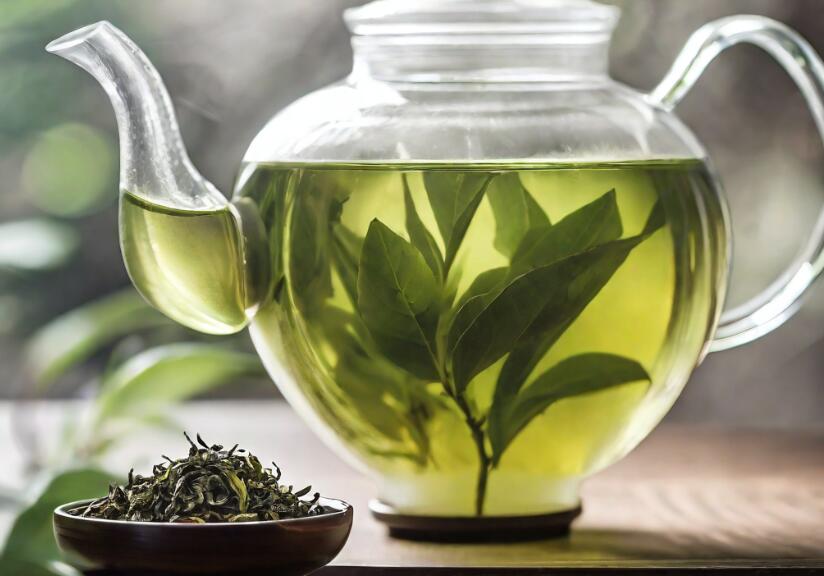
The Health Benefits of Green Tea
Green tea is packed with antioxidants, which can help protect cells from damage and reduce inflammation in the body. Some studies suggest it may also aid in weight loss and improve brain function.
1. Rich in Antioxidants
Green tea is loaded with antioxidants, such as catechins and flavonoids. These compounds help neutralize harmful free radicals in the body, reducing oxidative stress and protecting cells from damage.
The high antioxidant content of green tea is believed to contribute to its potential in preventing chronic diseases, including heart disease, certain cancers, and neurodegenerative disorders.
2. Supports Heart Health
Regular consumption of green tea has been linked to a reduced risk of heart disease. The antioxidants found in green tea help improve blood vessel function, reduce bad cholesterol levels, and lower blood pressure.
Studies have shown that individuals who drink green tea regularly have a lower risk of developing heart disease and stroke compared to those who do not consume green tea.
3. Boosts Brain Function
Green tea contains caffeine, which can enhance brain function and improve mental alertness. However, unlike coffee, green tea provides a more balanced and sustained energy boost due to the presence of an amino acid called L-theanine.
L-theanine promotes relaxation and reduces anxiety, counteracting the potential jittery effects of caffeine. The combination of caffeine and L-theanine in green tea can improve focus, attention, and cognitive performance.
4. Aids in Weight Management
Green tea has been shown to assist in weight management and support healthy metabolism. The catechins present in green tea can help boost fat oxidation and increase energy expenditure.
Studies suggest that green tea extract can enhance the body’s ability to burn fat, leading to potential weight loss and improved body composition.
However, it’s important to note that green tea should not be relied upon as a sole weight loss solution, but rather as part of a balanced diet and active lifestyle.
5. Promotes Digestive Health
The bioactive compounds in green tea, particularly catechins, have been found to support digestive health. Green tea can help reduce inflammation in the digestive tract, improve gut microbiota composition, and enhance nutrient absorption.
Additionally, the polyphenols in green tea have been shown to possess antimicrobial properties, which may help combat harmful bacteria in the gut and promote a healthy digestive system.
6. Supports Immune Function
Green tea contains compounds that can help boost the immune system and protect against infections. Epigallocatechin gallate (EGCG), one of the main antioxidants in green tea, has been found to have antimicrobial and antiviral properties.
Regular consumption of green tea may help strengthen the immune system, reducing the risk of common infections like the flu or the common cold.
7. Potential Cancer Prevention
Several studies have investigated the potential anti-cancer properties of green tea. The high concentration of antioxidants, particularly EGCG, in green tea, is believed to help inhibit the growth of cancer cells and reduce the risk of certain types of cancer.
However, it’s important to note that more research is needed to fully understand the precise mechanisms and potential benefits of green tea in cancer prevention.
8. Supports Skin Health
The antioxidants and anti-inflammatory properties of green tea can benefit the skin. Green tea extracts have been used in skincare products for their potential to protect against sun damage, reduce signs of aging, and improve overall skin health.
Applying green tea extracts topically or consuming green tea may help reduce skin redness and inflammation, and promote a youthful complexion.
Comparing Green Tea to Other Caffeinated Beverages
To put green tea’s caffeine content into perspective, let’s compare it to other common beverages. On average, a cup (8 oz) of green tea contains significantly less caffeine than a cup of coffee or black tea. Here’s a rough comparison:
- Green Tea: On average, an 8-ounce cup of green tea contains about 20-45 mg of caffeine. However, the caffeine content can vary depending on factors such as the type of green tea, brewing time, and water temperature.
- Coffee: An 8-ounce cup of brewed coffee typically contains about 95 mg of caffeine, but this can vary depending on factors such as the type of coffee bean, brewing method, and serving size.
- Black Tea: Black tea contains more caffeine than green tea. An 8-ounce cup of black tea typically contains around 47 mg of caffeine. Again, this can vary depending on factors such as the type of tea leaves, brewing time, and water temperature.
- Soda: Caffeine content in soda varies by brand and type. On average, a 12-ounce can of cola contains around 30-40 mg of caffeine, but some energy drinks can have significantly higher amounts ranging from 70 mg to over 200 mg per serving.
- Energy Drinks: Energy drinks are known for their high caffeine content. Depending on the brand and size, energy drinks can contain anywhere from 70 mg to over 200 mg of caffeine per serving.
- Chocolate: Dark chocolate contains a small amount of caffeine. On average, a 1-ounce (28 grams) serving of dark chocolate contains about 12 mg of caffeine.
| Beverage | Approximate Caffeine Content (8 oz / 230 ml) |
|---|---|
| Green Tea | 20-45 mg |
| Coffee | 95 mg |
| Black Tea | 47 mg |
| Soda (Cola) | 30-40 mg |
| Energy Drinks | 70 mg to over 200 mg |
| Dark Chocolate | 12 mg |
It’s important to note that these values can vary depending on the specific brand, brewing methods, and serving sizes. When considering your caffeine intake, it’s essential to be mindful of the cumulative effect if you consume multiple caffeinated beverages throughout the day.
How to Manage Caffeine Intake with Green Tea
While green tea offers numerous health benefits, it’s essential to manage your caffeine intake, especially if you’re sensitive to caffeine or have specific health concerns.
The recommended daily caffeine limit is approximately 400 mg for most healthy adults. To control your caffeine consumption through green tea, consider the following tips:
- Choose Green Tea Varieties with Lower Caffeine Content: Japanese green teas, such as Sencha and Bancha, generally have lower caffeine levels compared to Chinese green teas. White tea, which is made from young tea leaves and buds, also tends to have lower caffeine content.
- Adjust Brewing Time and Temperature: Caffeine is extracted more quickly at higher temperatures and during longer brewing times. If you prefer a milder cup of green tea, reduce the brewing time and lower the water temperature. Steeping for 1-2 minutes at around 170°F (77°C) can help reduce caffeine extraction while still preserving the flavors and health benefits.
- Opt for Decaffeinated Green Tea: If you’re particularly sensitive to caffeine or want to enjoy green tea in the evening without interfering with your sleep, consider decaffeinated green tea options. These teas undergo processes to remove or reduce caffeine content while retaining the flavor and other beneficial compounds.
- Mindful Consumption: Pay attention to your body’s response to caffeine and adjust your consumption accordingly. If you experience any adverse effects or sleep disturbances, consider reducing your overall caffeine intake or switching to caffeine-free alternatives.
Remember, caffeine sensitivity can vary among individuals, so it’s essential to listen to your body and find what works best for you.
FAQs
Let’s address some common questions and misconceptions related to caffeine in green tea:
1. Can you remove caffeine from green tea?
Yes, decaffeinated green tea options are available. These teas undergo processes to remove or reduce caffeine content while retaining the flavor and other beneficial compounds.
2. Is decaffeinated green tea completely caffeine-free?
While decaffeinated green tea has significantly lower caffeine content, it may still contain trace amounts of caffeine, typically less than 5 mg per cup.
3. Does the caffeine content vary between green tea brands?
Yes, the caffeine content can vary depending on the specific brand, tea type, and brewing method. It’s always advisable to check the packaging or consult the manufacturer for more information.
4. Are there any health risks associated with green tea caffeine?
Green tea and its caffeine content are generally safe for most people when consumed in moderation. However, it’s important to be mindful of individual caffeine sensitivity, potential interactions with medications, and any underlying health conditions. Consulting with a healthcare professional can provide personalized guidance.


